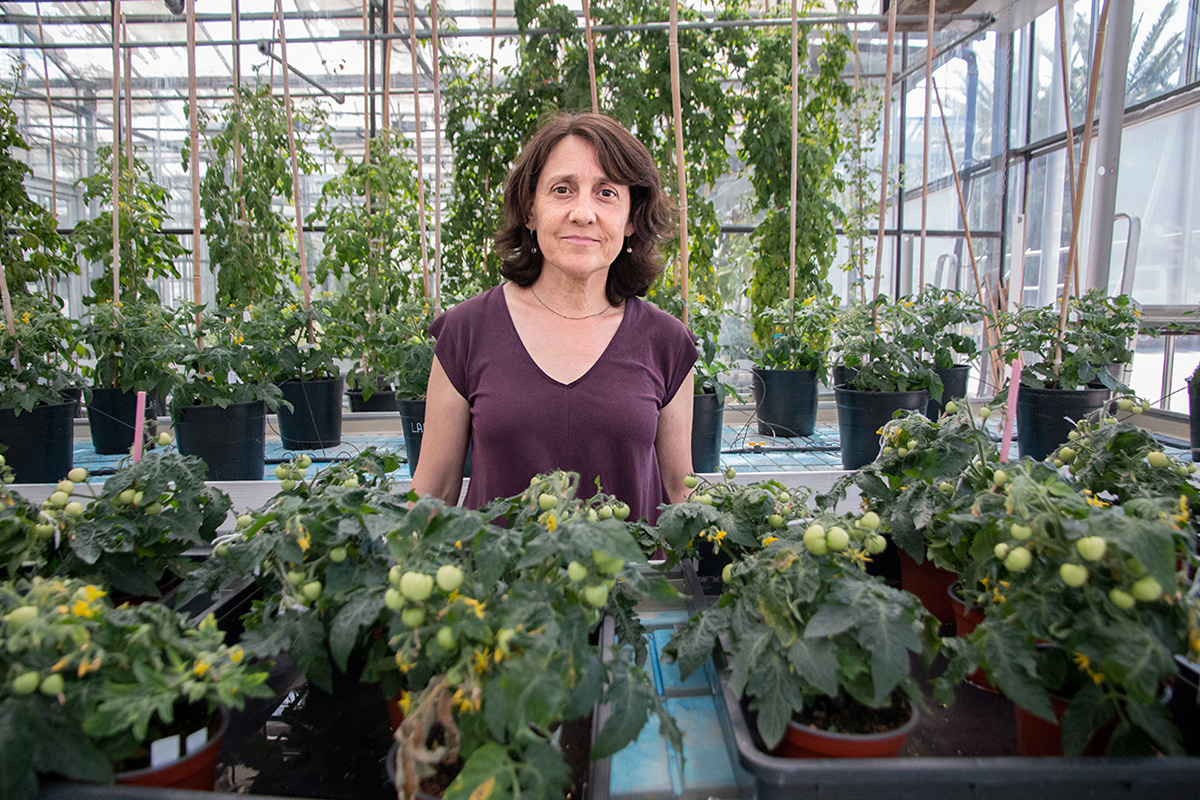Technology at the service of tomato cultivation
Concha Gómez Mena is a full CSIC scientist at the IBMCP (CSIC-UPV)

My name is Concha Gómez Mena and I am a researcher at the Institute for Plant Molecular and Cellular Biology (IBMCP) in Valencia (Spain). I am currently doing research on the reproductive development of a crop plant, the tomato; specifically on the development of the flower and the process of fruit formation. Fruit and seed formation in the tomato plant is a very interesting process that can also be directly applied to the industry, so we want to discover the molecular mechanisms that control these processes and how we could control them in order to be able to apply them to the market.
We are currently working on a project to identify the genes that control pollen development and formation. This study has many applications, and now, with tools such as CRISPR gene editing, it is something we can do very easily. One of these applications is to create crops in which pollen release is blocked and which can be used to create hybrid seeds. On the other hand, pollen is very sensitive to temperature changes, and in the current climate change situation, we are working to get plants that are more tolerant to extreme heat.

The Biology and Biotechnology of Reproductive Development group at the Institute for Plant Molecular and Cellular Biology (CSIC-UPV). From left to right, Edelin Roque Mesa, Rim Hamza, Mª Jesús López Martín, Blanca Salazar Sarasua, Concha Gómez Mena, and Maricruz Rochina Peñalver. / Photo: Lautaro Iglesias
CRISPR techniques are very powerful in making changes in plants that are equivalent to those made by natural variation, but they are currently completely blocked. European legislation lists them as genetically modified organisms, when in fact they only have small controlled DNA changes, with no extraneous sequences from foreign genes. However, we scientists feel that change is coming, and it seems that companies feel the same way, as evidenced by the corporate interest in this type of modification and its immense potential.
Interview conducted by: Marta Gutiérrez and Anna Mateu. Editing: Sofía Fernández Hernández and Anna Mateu.





